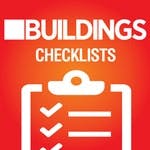While the cost of a commercial elevator maintenance plan might be intimidating at first sight, it’s actually a practical investment considering how much unexpected service calls and repairs can cost. To put this into perspective, below is an overview of typical elevator-related expenses with and without a service plan.
Without an Elevator Maintenance Plan
Maintenance plans are essentially checkups for the systems and are a proactive way of identifying potential problems before they become serious issues. Without a maintenance plan, a malfunctioning part can go unnoticed until something major happens.
Opting out of a maintenance contract can result in high repair costs as well as inconvenient downtimes and frustrated passengers. Here’s a glimpse at some of the costs that may be associated:
Service Calls
These may cost more than $300/hour. However, service calls can run even higher for emergency or after-hours calls.
Always remember that elevators are complicated pieces of equipment that require extensive training to care for. Non-professionals should never attempt to service an elevator.
Code Violations
In most jurisdictions, commercial elevators must be inspected every year to ensure they are up to code. In Massachusetts, there is a $100/day fine for each day an elevator is operating without applying for the annual inspection.
Full Modernization
This depends on the size and type of system but will likely cost $150,000- $1,000,000. Elevators that don’t receive routine service may need a total makeover, including a new motor, piston or other expensive parts.
[Related: Top 10 Ways IoT is Changing Elevators]
It’s important to note that the cost of service calls and code violations don’t include the price of replacement parts, which can run high. For example, a new motor can cost more than $5,000.
Even elevators with maintenance plans may need repairs due to a few of these common elevator issues:
- Malfunctioning doors
- Worn chains/cables
- Electronic glitches in an automated system
- Ruptures in hydraulic systems
However, the lack of a maintenance agreement can make even these common problems a hassle to resolve.
Always remember that elevators are complicated pieces of equipment that require extensive training to care for. Non-professionals should never attempt to service an elevator.
BUILDINGS Podcast
Prescriptive Maintenance: The Next Generation Solution
Preventative maintenance is a crucial component to your facilities systems. Taking this one step further is prescriptive maintenance—or RxM. Listen now >>
With an Elevator Maintenance Plan
Partnering with an elevator service company for a maintenance plan is the best way to ensure reliable operation of the equipment as well as a safe ride for passengers. Plus, a lot of the high costs associated with service and repairs can be controlled with regular maintenance.
By having systems checked on a monthly basis, technicians can catch and solve small problems before they have the chance to develop into serious, costly issues.
Many maintenance plans will also include 24-hour emergency service and guaranteed monthly safety checks, which provides peace of mind that all systems are in good hands.
BUILDINGS Checklist
Preventative Maintenance
Preserve the integrity of your roofing, lighting, HVAC and plumbing with our preventive checklist. Get yours here >>
Elevators in small buildings can have maintenance contracts that cost between $3,500 and $5,000 per year, while high-rise buildings might pay between $8,000 and $10,000 a year. The exact price of a yearly plan will depend on the number of elevators and what types of systems they are.
Regularly maintained systems also have much longer lifespans than ones without a service plan, typically around 20 years or more depending on the type of elevator, usage and other factors that contribute to wear and tear. However, keep in mind that even the most well-cared for systems may need to have parts replaced during their lifetime.
Fortunately, many elevator service companies offer maintenance plans that can fit into a variety of budgets. Verify that the service company is familiar with the specific type of elevators on the premises, and has technicians and a local parts inventory close by for quick service when needed.
About the Author:
Cory Hussey has been with Stanley Elevator for over 13 years and currently serves as their COO and General Counsel. His focus is on business operations as well as all legal and financial matters. He also has experience with marketing strategy, risk management and safety, corporate finance and managerial accounting.
Two handpicked articles to read next:

